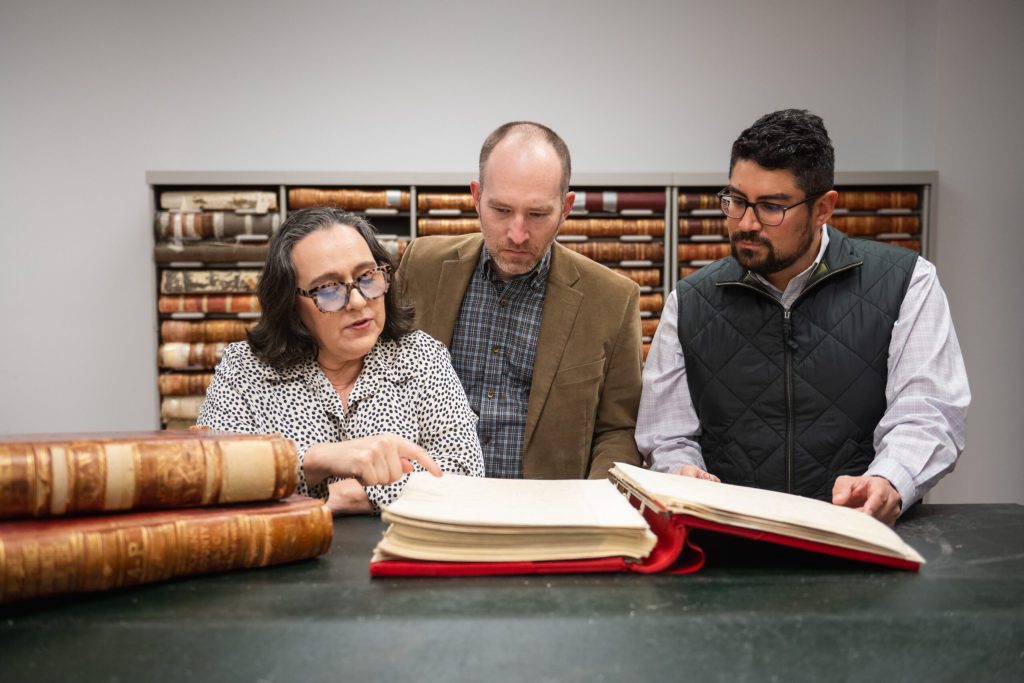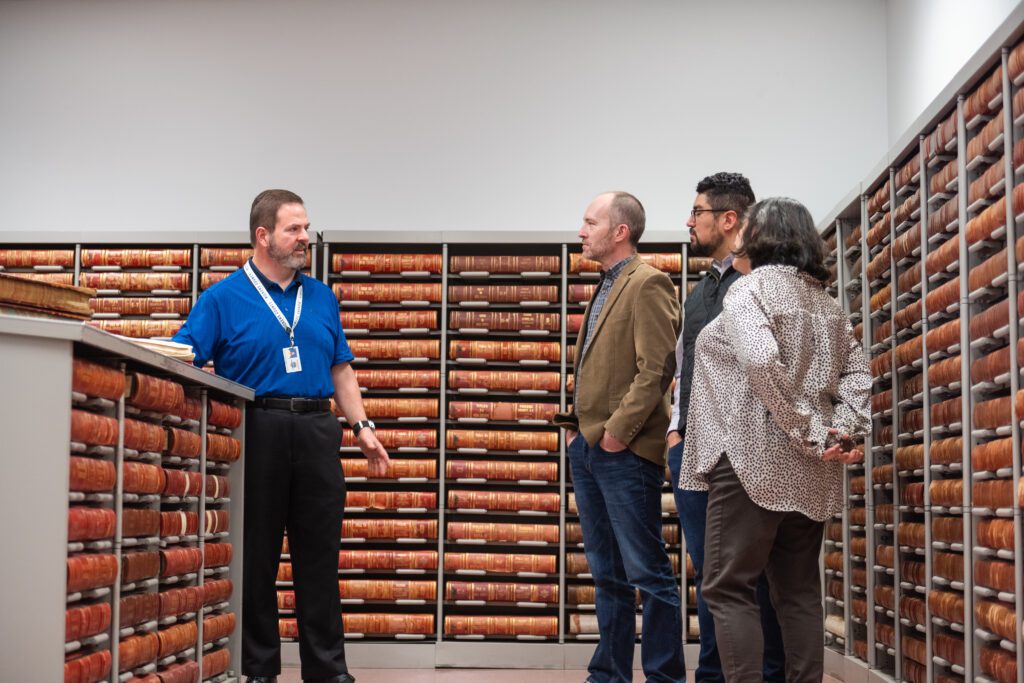
Susannah Ashton, Brent Morris and Chris Vinson
By Riley Morningstar
Public information coordinator for the College of Arts and Humanities
The names of hundreds of enslaved people listed as property will soon be digitally preserved through the work of an interdisciplinary group of Clemson University professors and researchers.
With a $10,000 grant and the cooperation of community partners in Pickens County, these researchers plan to digitize and transcribe centuries-old handwritten records and expand the project throughout South Carolina.
Department of English Professor Susanna Ashton, Department of History Professor J. Brent Morris and R.M. Cooper Library Head of Digital Strategies Christopher Vinson have worked in conjunction with Pickens County Register of Deeds department head Paul McGuffin in preparing to take the physical records from the 19th century and transfer them into the digital space. Interim Director of Digitization and Metadata Librarian for Digital Collections Jessica Serrao is serving as the project’s senior program associate.
“This partnership demonstrates a strong dedication to preserving the history of our communities and exposing countless names lost to history. Ensuring that these names and stories are not forgotten is crucial. Giving future generations the ability to access this information is paramount. I cannot wait to see the incredible outcomes of this collaboration and the unfolding history that will set the stage for more counties in South Carolina to share their community histories as well and give a better understanding to those names and stories that need to be told,” said McMuffin.
The Clemson Faculty Succeeds (CU SUCCEEDS) funding program provided the seed money in March, but the legwork to begin the project has been ongoing for more than a decade.
Deeds Unbound is the name of the research project that aims to go beyond digitizing 19th century documents. The researchers are unearthing deeds that nonchalantly list enslaved people as property in estate transactions.
“In a way, we’re taking these humans out of the deeds — their bonds — and bringing attention to them as historical actors through a source that has been overlooked up until this point,” said Morris, whose historic expertise focuses on the American South and African American history. “The main goal of this project is to rescue these people from historical oblivion. People who want to know more about their family today will be able to do that.”
Years in the making, with an eye to the future

Pickens County Register of Deeds department head Paul McGuffin (far left) speaks with Department of History Professor J. Brent Morris (middle), R.M. Cooper Library Head of Digital Strategies Christopher Vinson and Department of English Professor Susanna Ashton (far right) in February 2024.
Work on digitizing area deed records started a dozen years ago, Ashton said, as she worked alongside Vinson, Calhoun Lemon Professor of Literature Rhondda Thomas and Professor of History O. Vernon Burton. But time passed, and other pressing projects popped up.
“This wouldn’t be possible without them,” Ashton said of the project’s past and present contributors.
An Upstate judge granted a special court order allowing the research team to remove the records from Pickens County and begin digitizing them in the University’s Digital Imaging Lab in Anderson, South Carolina. The work should take the entirety of the summer, Vinson said.
He shared that he was moved the first time he uncovered the names of enslaved people in the public records.
“I remember looking through these books with Susanna in 2013, and there they are,” Vinson said. “They just smack you right in the face. It was just really impactful.”
Once the work in Pickens is complete, the project isn’t necessarily over. Ideally, more funding would come and allow Ashton, Morris and Vinson to collaborate with others in every corner of the state. The ultimate goal, each said, is to digitize documents in all 46 counties.
If successful, the end product would provide a holistic view of the number of enslaved people overlooked in the historical records of South Carolina. Places like Dorchester County would include significantly more records of plantations than anywhere else in the Upstate, Ashton said.
“Nobody’s ever collected and consolidated this information for the entire state before — and we have a remarkable history,” she said. “A sad one, sometimes, but it’s also remarkable. And we need to see it clearly.”

